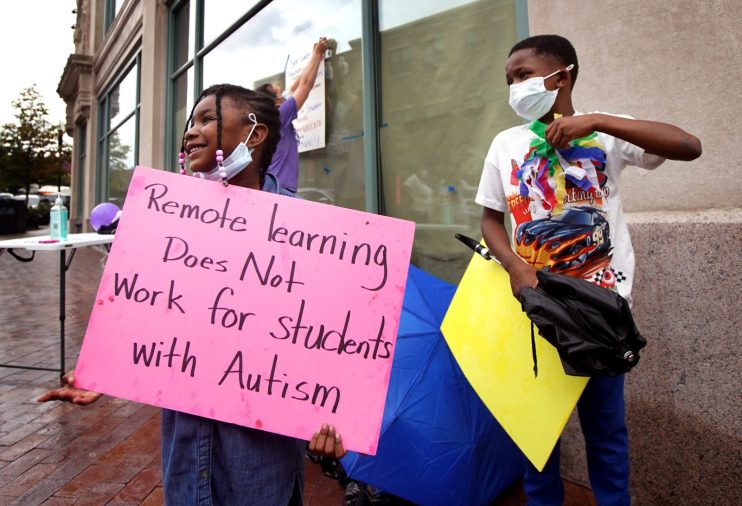Thinking differently: hiring people with autism isn’t about altruism

Businesses in the UK have made great strides towards creating more diverse workforces. Teleport any 1970s employee into a modern-day workplace and, once they get over the fact that most of us are working from home, they’d find it remarkable that people of all races, sexual orientations, gender identities, and religious beliefs work in harmony.
There is a long way to go, but progress is being made. However, there is still one major stigma remaining: autistic people in the workplace.
As April 2nd is the UN-backed Autism Awareness Day, let’s consider the recent, damning ONS figures which reveal that just 22 per cent of the UK’s 700,000 autistic adults are in any kind of employment. These statistics aren’t down to a lack of ambition, with the report finding that 61 per cent are desperate to work.
This stark employment gap creates untold anguish and anxiety up and down the country. The past year has been tough on everyone, but people with autism have been particularly affected, with the lockdown, combined with shielding for many, upsetting established routines and forcing many autistic people to make uncomfortable changes.
The result of this upheaval and the financial stresses associated with unemployment is that 90 per cent of people with autism are worried about their mental health during lockdown, according to the National Autistic Society. 85 per cent said their anxiety levels have worsened.
Meaningful employment and the financial and emotional security that comes with it, would go a long way to alleviating this anxiety. So how can we go about closing this employment gap? First, we must knock down the main barrier: a lack of understanding on the part of business leaders, and the commonly held misconceptions around hiring autistic people.
Many executives would proudly and publicly support more opportunities being granted to neurodiverse people, but deep down they would consider such a recruitment strategy risky and potentially damaging to their business. They would consider employing people with autism an act of corporate social responsibility, rather than a beneficial profit-related decision.
Having improved the lives of over 300 young people with autism through training and employment, my team and I know first-hand the unique skills that they possess. Autistic people can be incredibly valuable employees who help your bottom line just as much as you can help them.
On top of a strong work ethic, autistic people often have exceptional memory and problem-solving skills, which stem from both their logical and creative thinking. They look at the world in a different way, providing fresh perspectives and the ability to detect errors that may not be spotted otherwise. This heightened attention to detail coincides with the ability to concentrate for long periods of time without losing focus, a particularly valuable skill with staff working from homes full of distractions.
Furthermore, because of the difficulties they face in the job market, autistic people are often grateful for the chance to prove themselves within an organisation, and show high levels of loyalty towards their employers.
By giving people with autism the opportunity to showcase their worth, you will watch as they, and your business, thrive. According to Employment Autism, companies with well-established disability community outreach programmes have a 30 per cent lower employee turnover rate and are twice as likely to outperform competitors when it comes to shareholder returns.
This isn’t about altruism. It’s about unleashing the potential of an untapped group of people who can contribute to almost any company in almost any sector.
Looking ahead, the move away from office-based working environments will suit autistic people who may not have been able to commute long distances or sit at a desk for 40 hours every week.
Now, therefore, is the time to give autistic people a chance. On the journey towards true diversity, it’s important we don’t leave them behind.